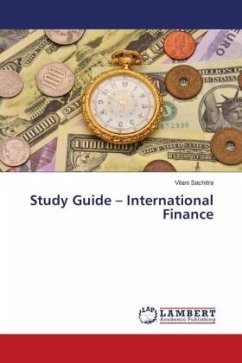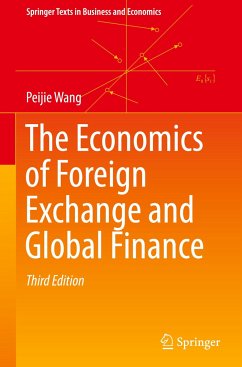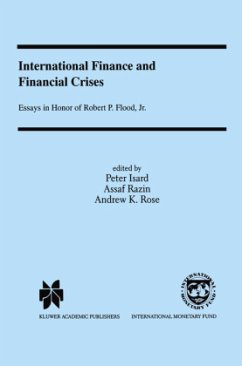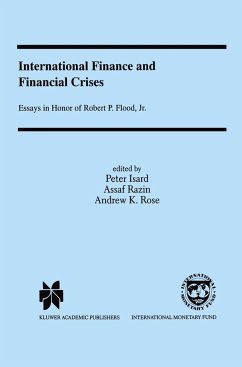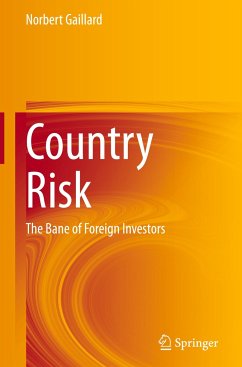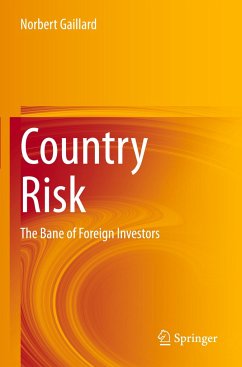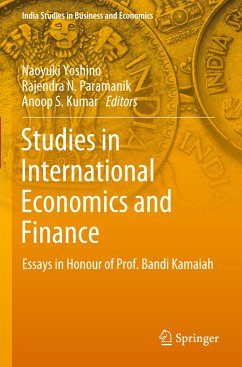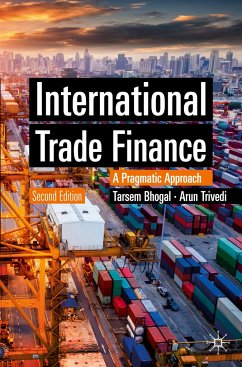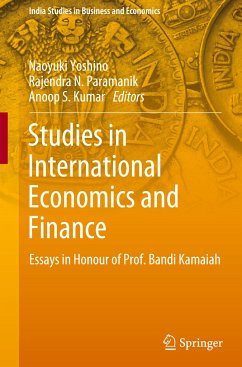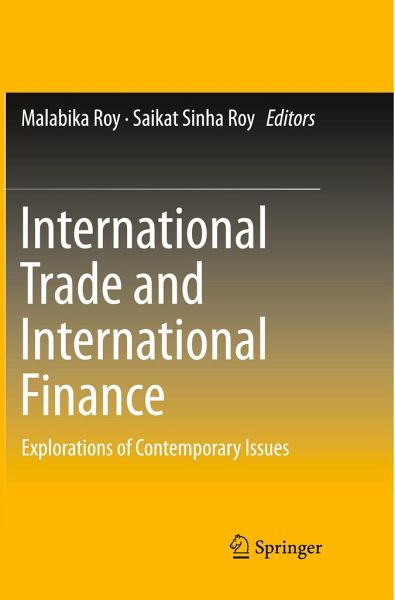
International Trade and International Finance
Explorations of Contemporary Issues
Herausgegeben: Roy, Malabika; Sinha Roy, Saikat
Versandkostenfrei!
Versandfertig in 6-10 Tagen
115,99 €
inkl. MwSt.

PAYBACK Punkte
58 °P sammeln!
This book brings together a collection of papers on international trade and international finance, instead of treating the two as disjoint fields of study. The volume, while focusing on the recent developments and frontiers of research in international trade and international finance, also emphasizes the inherent integrated nature of the two subjects; some of the papers are overlapping across the two areas. A unique feature of the proposed volume is that it unravels some new issues in addition to re-examining certain old issues in a new perspective and thus covers wide ranging issues with an e...
This book brings together a collection of papers on international trade and international finance, instead of treating the two as disjoint fields of study. The volume, while focusing on the recent developments and frontiers of research in international trade and international finance, also emphasizes the inherent integrated nature of the two subjects; some of the papers are overlapping across the two areas. A unique feature of the proposed volume is that it unravels some new issues in addition to re-examining certain old issues in a new perspective and thus covers wide ranging issues with an emphasis on policy. The book covers issues mostly relating to emerging market economies, which has increasingly assumed importance in the context of globalization. The book contains some survey papers covering the frontiers of current knowledge on important themes like recent developments in trade theory and empirics, foreign exchange market, institutions in trade and finance, interrelation and interaction between international trade and international finance. The papers, fruit of rigorous and original research, are written by internationally and nationally reputed authors along with promising young researchers on the subjects. The book substantially contributes to the growing literature on issues relating to trade and international finance in emerging market economies and extends the frontiers of knowledge. The book is expected to have the widest possible readership comprising of advanced undergraduate and graduate students as well as senior researchers working in international trade and international finance.



